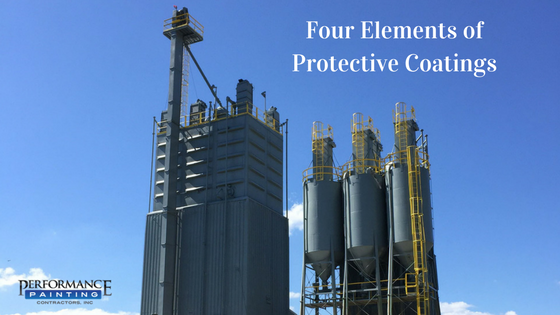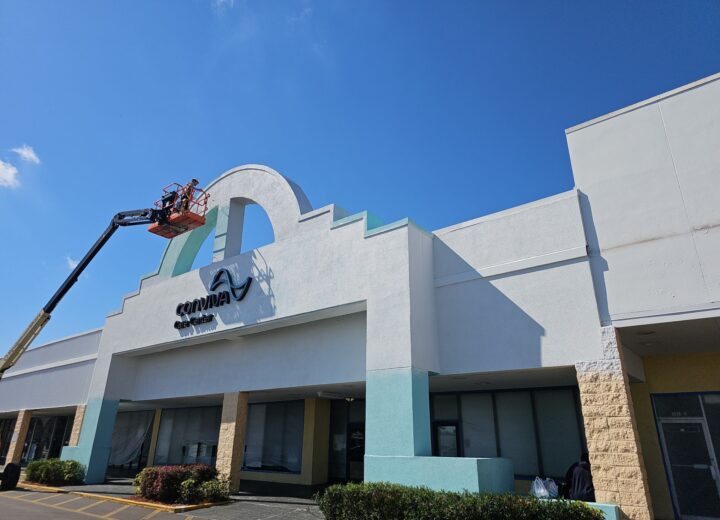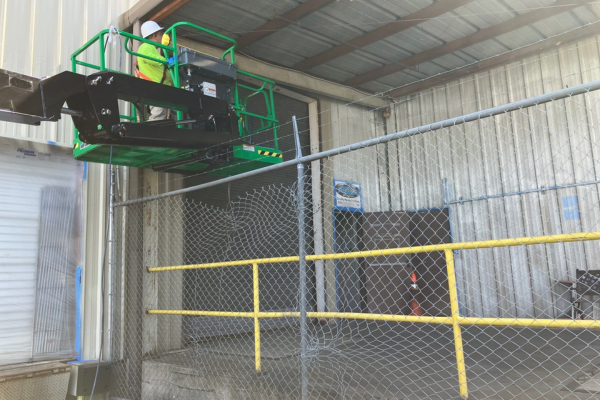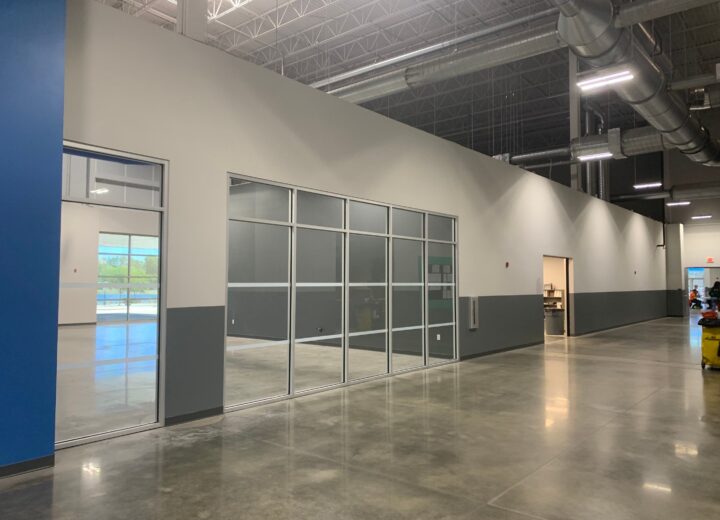
The performance, durability and resistance properties of industrial coatings are largely dependent on the types and amounts of ingredients used. For protective coatings to perform as expected in specific environments, paint and coating manufacturers utilize a series of specialty elements that determine the characteristics of paint products.
Here are the four basic components included in industrial and protective coatings.
Pigments
Nowadays, hundreds of different pigments, both organic and inorganic, are used for coloring coating products. But even though the main role of pigments is to produce color, specialty pigments also have a protective effect, which makes them appropriate for a wide variety of commercial and industrial applications.
For instance, some industrial coatings contain specially developed functional pigments, commonly referred to as effect pigments. Disposed in a layered arrangement, these pigments provide high-quality finishes that protect surfaces against moisture, corrosion and weathering processes, preventing damage to industrially coated products during their lifetime.
Additionally, the coating manufacturers committed to helping their customers comply with environmental rules and regulations make available specialty pigments with improved environmental profiles, such as the liquid pigment dispersions for water-based protective coatings.
Binders
Binders are polymers that act as adhesives in protective coatings, promoting the chemical bonding between the components of a paint film and ensuring optimum adhesion to substrates.
Depending on the type of binder used, whether it’s acrylic, urethane or epoxy, protective coatings will achieve the durability, strength, moisture resistance, UV resistance, chemical resistance, corrosion resistance and elasticity required for each industrial painting application.
Additives
These ingredients are used to give industrial coatings the requisite properties in order to fit specific projects. Depending on the scope of each project, industrial painting contractors use coating systems with specific additives, such as:
- Silicones, which improve weather resistance, thus are appropriate for outdoor components like silos, storage tanks, pipes, etc.;
- Rheology modifiers, which enhance durability and leveling characteristics of paint films;
- Fungicides and algaecides, which protect surfaces against mildew, mold and algae deposits;
- Dispersants, which stabilize paint formulations and distribute pigments evenly;
- Surfactants, which promote adhesion and stabilize colors;
- Additives that keep the paint from drying too quickly;
- Preservatives, which prolong the shelf life of coating products.
Solvents
All protective coatings contain water or organic solvents, which are used to reduce the viscosity of products for easier and better application. During the curing process, the water or solvent evaporates into the atmosphere, allowing the other ingredients to harden into a resilient, smooth, long-lasting film of paint.
Depending on each project, industrial painting contractors can use water-based industrial coatings instead of products that contain VOCs and which are harmful to the environment and human health.
For industrial painting applications, manufacturers also make available powder coatings, which don’t contain water or solvents. In most cases, however, solvent-based coatings are the only effective option or have clear performance advantages compared to water-based or powder coatings.
Given the importance of the ingredients used in industrial coatings, paint and coating manufacturers constantly develop new paint formulations that provide improved adhesion to substrates, superior corrosion protection, resistance to different types of corrosives and enhanced color retention.
For more information about the protective coatings available for industrial painting applications, please feel free to contact Performance Painting Contractors today. Our professionals with extensive experience in this industry can recommend the right coating systems that can substantially contribute to excellent performance and durability, resource efficiency and last, but not least, improved health and safety.






